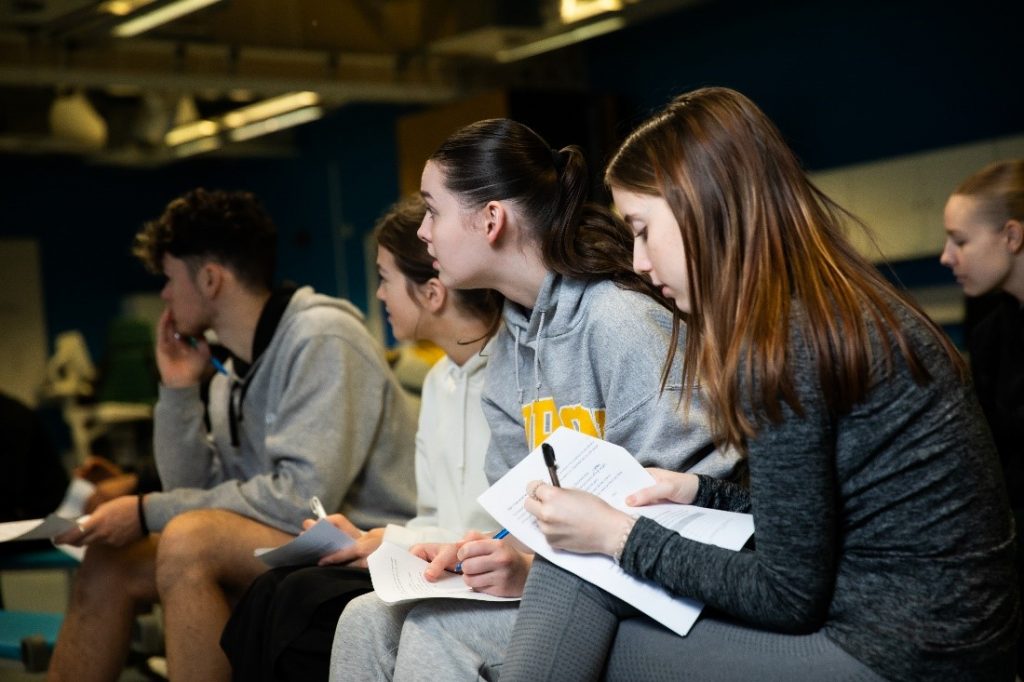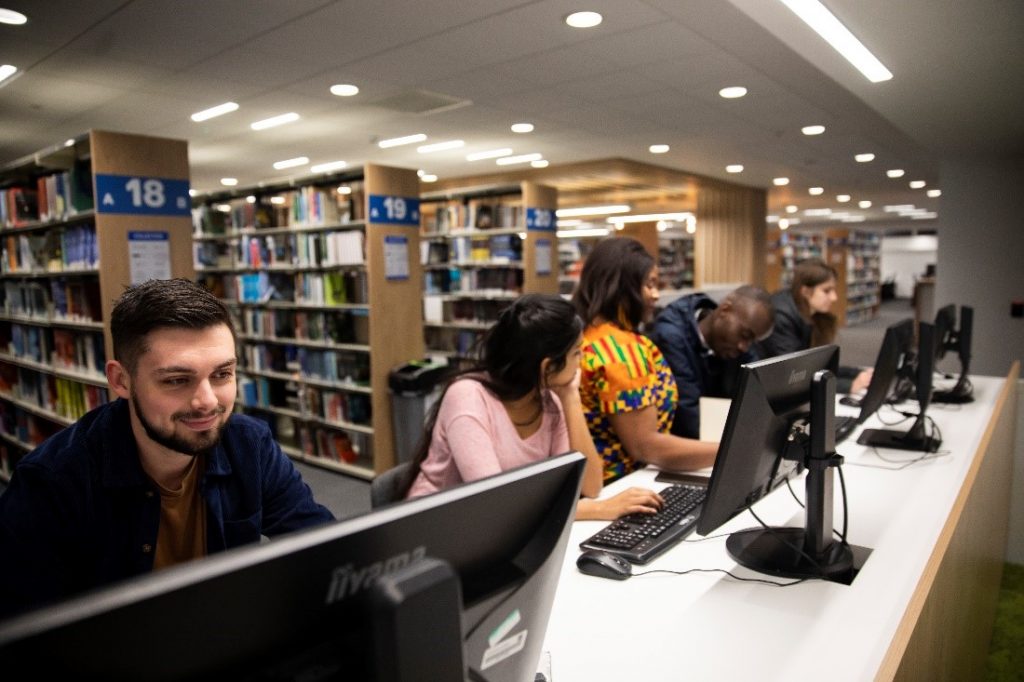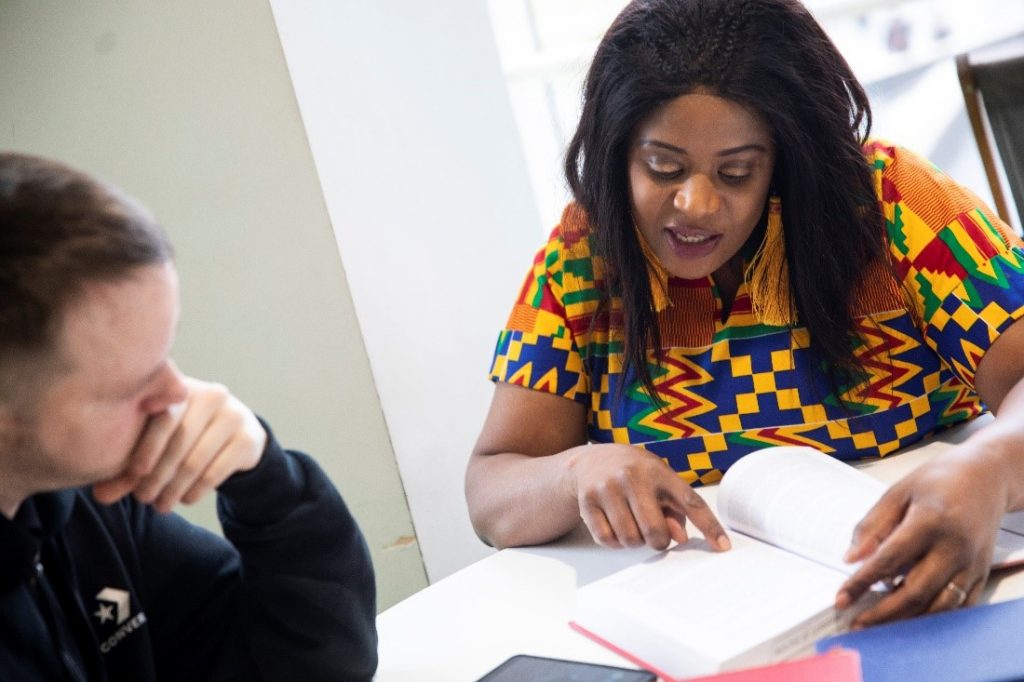As an international student from Bangladesh, studying and communicating in English every day for was a matter of concern and anxiety for me. I thought conversation with my teachers would be especially difficult because back home in Bangladesh, teachers are particular about how they are spoken to and interacted with by their students. However, there was no need for me to be worried, as I’ve had an effortless and exciting experience with the assistance of my professors and support from the University of Salford.
Read on to find out what I’ve learnt so far from my experience of studying in the UK academic system and at Salford so far.
Approachable and friendly teachers
At the beginning of my course, I was expecting that communicating with the teachers and asking them questions would be challenging for me, as English is my second language, and I am not confident enough at explaining or asking my queries. I was also expecting that I had to use formal language to address my teachers and needed to request permission to talk with them, like I had to back home.
All my worries were wiped away when I noticed my teachers were friendly and reassured us that we could speak to them about any type of query. My teachers are always there to help me and when I share my thoughts or ask for help with anything, they carefully consider my opinions and challenges and give me valuable guidance.

Support to understand a new subject area
As I studied business for my bachelors, doing my master’s in PR and Digital Communications is a completely new subject for me. Therefore, I was worried that my teachers would be annoyed with me if I kept asking questions due to my lack of knowledge in this area.
However, I’ve found the complete opposite to be true. My teachers always appreciate the interest and effort that I am showing towards the course, and they are consistently helpful with their suggestions for books I should read or think about. For example, at the beginning of the first trimester, I shared my lack of knowledge of the basics of PR with my module teachers. They suggested that I should read journals and articles of different international organizations and writers to gain an overall idea about the basic terminologies or concepts of the course. This has really helped my learning and I feel more confident about this topic now.

Classes available on demand
When I was doing my undergraduate in Bangladesh, if I had had missed any classes due to an emergency, or I was struggling to understand the topic, I was not allowed to get the lessons from teachers and had to resort to ask my friends for help. There was not any facility available for students to review the previously discussed lectures. This meant that I struggled a bit more when it came to assessment periods.
However, at the University of Salford, I am blessed enough to get all the taught lessons available online on ‘Blackboard’ after the class and I am allowed to e-mail my teachers if I am still confused about anything.
Also, all the books or journals and other study resources are available online on the reading list and accessible on-demand to students. To further support us with our assessments, teachers make time for us to have a one-to-one session with them to discuss any concerns.
I also find it helpful that I can show my teacher my assignment before the deadline, to get some advice and feedback before submitting it.

Dedicated learning resources
At first, I was confused about how I was going to get into the academic learning process as I had minimum knowledge of the UK education system. I discovered that the University of Salford has designed a number of effective learning resources to assist students with the development of their academic skills. For example, they offer workshops for academic essentials like referencing, LinkedIn learning which has lots of courses to support you with everything from tech and business skills to creative skills. We also have access to trainer-led workshops and webinars to develop IT knowledge and skill including Microsoft Office Specialist (MOS), a globally recognized IT qualification which is free for University of Salford students.

Specialist English support for international students
International students from non-English-speaking countries like me may face difficulty writing academic essays or communicating confidently on the course. The University of Salford has brought wonderful resources to guide students, for example, a programme called Learn English for Academic Purposes (LEAP).
LEAP helps students to create higher quality of work through improving their writing, listening, speaking and reading skills. I have taken a few online LEAP sessions for my academic essay writing, and I found them helpful and effective. What I found particularly useful is that students can join the workshops online or face to face according to their preference.

Tips for adapting to the UK education system quickly
- Prepare in advance – use the support services that are available, from the library skills support, to LEAP, these services will help you achieve your best. If you read your welcome guide before you start you will get lots of information about how to access these services.
- Look into your module contents carefully – every student must have a general idea about the courses and lessons which will be delivered over the trimester. Therefore, check your blackboard regularly.
- Use Library Search – for any kind of help either with the reading list or with the assignment writing, always go to Library Search to find an absolute solution.
- Communicate regularly with your lecturers – your-teachers are always there to assist you, so any time you are confused or need help, simply ask to meet them or email them for advice.
I wish you good luck with your learning journey as an international student and I hope all of you out there will excel in your academic voyage here at the University of Salford.
Written by Jannatull Chowdhury